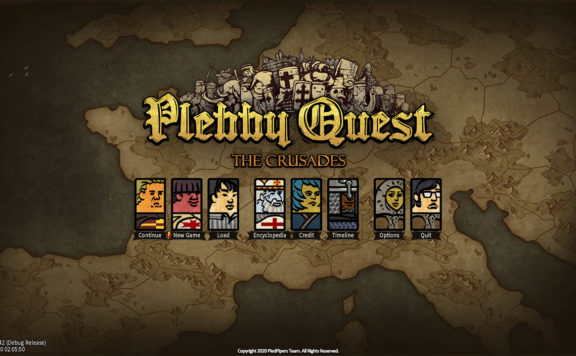Card games come in many different forms. In Signs of the Sojourner, Echodog Games has worked out a way for a roleplaying deck builder to imitate life in fascinating ways. Navigating conversations and relationships can be difficult in real life, but does Signs of the Sojourner cohesively build a game that is as entertaining as it is intriguing? Our Signs of the Sojourner Review answers just that.
In Signs of the Sojourner, you are essentially a tradesman that has taken over your mother’s store after her death. As you begin your first trip, you are tasked with learning many things and meeting people, many of which knew your mother. Your primary objective is to pick obtain new items for your store, which can often take some convincing, as not everybody is as welcoming and willing to help. A lot of thought goes into the way this game presents itself. Players have to be able to determine their routes, and even plot out what kind of conversations they may be getting themselves into so that they are well prepared before they set off on their journey.  Conversations are pretty much the meat of the game. Whether you find yourself attempting to convince a companion to join you, alter your route, or obtain a new item for your store, each challenge will be presented with a card game, that will determine the kind of conversation you might have. Cards essentially represent the tone of the conversation, and you can choose to simply match the tone of the person you’re speaking with, change it up, or scrap the conversation entirely. As you progress, conversations become tougher. Signs of the Sojourner is a deck builder, and after each conversation, you can acquire a new card your associate used during the chat. This is nice, but also part of the challenge of the game, as you essentially have to take a card, replacing once you already own. You won’t always have the chance to obtain cards that are particularly useful, but more times than not you can find an interim card that will aid you in your next conversation.
Conversations are pretty much the meat of the game. Whether you find yourself attempting to convince a companion to join you, alter your route, or obtain a new item for your store, each challenge will be presented with a card game, that will determine the kind of conversation you might have. Cards essentially represent the tone of the conversation, and you can choose to simply match the tone of the person you’re speaking with, change it up, or scrap the conversation entirely. As you progress, conversations become tougher. Signs of the Sojourner is a deck builder, and after each conversation, you can acquire a new card your associate used during the chat. This is nice, but also part of the challenge of the game, as you essentially have to take a card, replacing once you already own. You won’t always have the chance to obtain cards that are particularly useful, but more times than not you can find an interim card that will aid you in your next conversation.

Each match will require you to match the shapes on the card. On the left side, you must match the shape of the last card played, on the right, you have the opportunity to change the shape of the cards, and the conversation as a whole. In some cases, you may find that you end up with cards and shapes in your hand that your opponent can’t match, and after several attempts of failed matches, you essentially forfeit the conversation. It’s an unforgiving system seeing as how you don’t always know what cards your opponent can play, and failing a conversation entirely can cause rifts in the relationships you hope to nourish further.
Signs of the Sojourner is a fair deck builder that really shines as a progressive narrative. As interesting as the narrative aspects can be, the main pitfall I had with Signs of the Sojourner was finding the lasting enjoyment in it. As a huge fan of deck building games, finding new cards, and learning the ropes of the conversations entertained me enough to push me through several calendar days’ worth of journeys. In the end though, the deck building aspect began to feel contrived, and as much as I wanted to push a particular narrative and conversation one way, I just couldn’t always build viable decks, and keep them that way long enough to hold my attention. That being said, the narrative aspect is engrossing enough, that those who are really into a slice of life game, would find plenty to love here.







